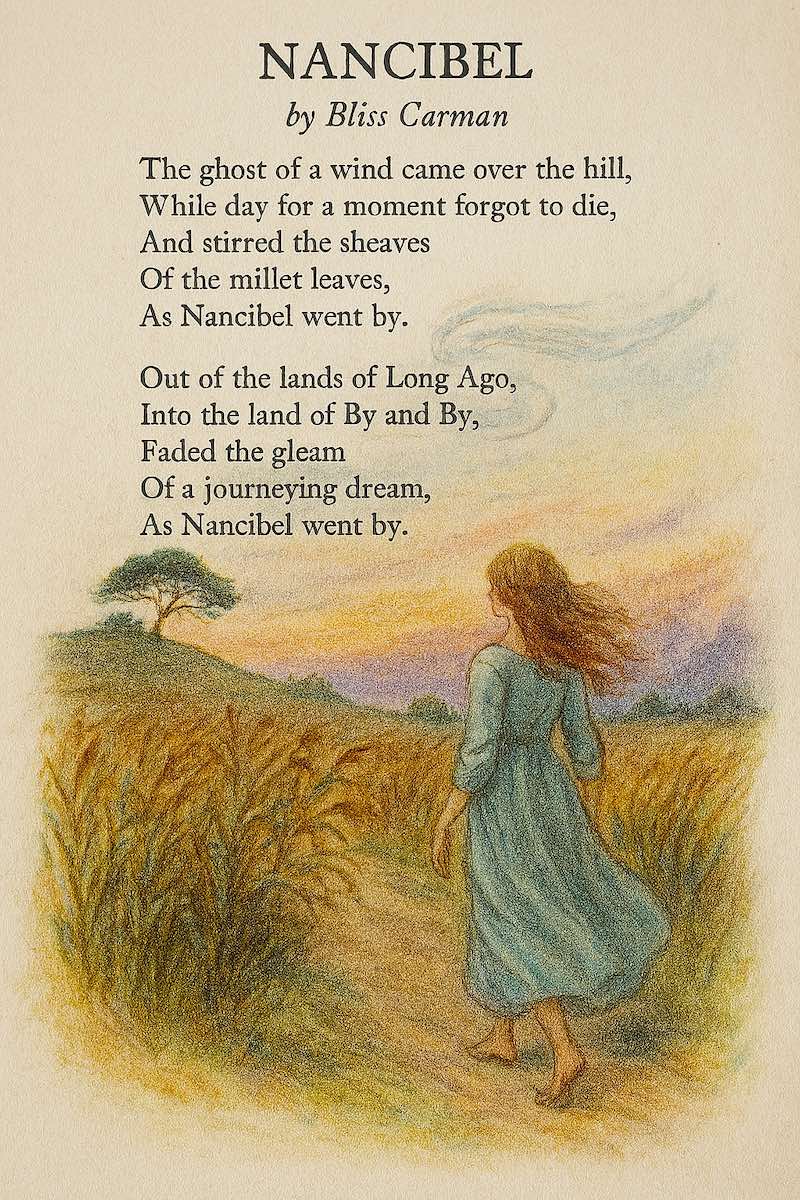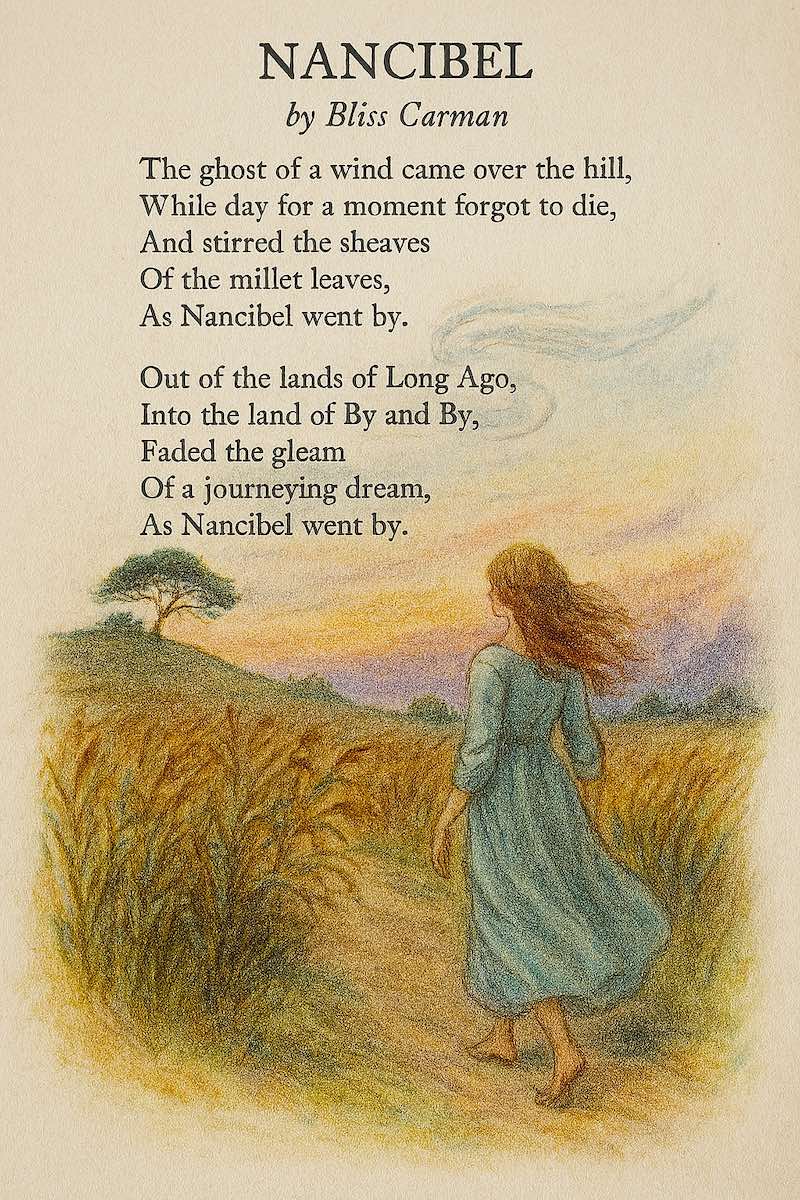The Ghost of a Wind: Bliss Carman's Lyrical "Nancibel"
Bliss Carman’s “Nancibel,” published in 1895, is a shimmering piece of lyrical, late-Romantic poetry. It captures a moment of intense, fleeting natural beauty inextricably linked to human memory and presence. While Carman—one of the great Canadian poets—wrote the poem in several stanzas, this concise excerpt perfectly encapsulates his mastery of rhythm and evocative imagery. It is a poem built on sound and sensation, making it a perfect listen for The Concise Verse. It asks us to consider how human presence and powerful natural forces can become fused in memory.
The Poem
The ghost of a wind came over the hill,
Out of the lands of Long Ago,
The central "insight" is the poem's successful blending of lyricism, nature, and the ethereal. The titular figure, Nancibel, is not described physically but is defined by her effect on the world around her. She is a figure of movement ("went by") and transition, and the entire scene—the wind, the sun ("day... forgot to die"), and the millet sheaves—responds to her presence. The poem is a musical celebration of a brief, perfect moment that feels both entirely real and completely like a dream.
Carman employs classic poetic devices to create the poem's musicality. Notice the heavy use of alliteration (e.g., "ghost of a wind came over the hill," "lands of Long Ago") and a strong, sing-song rhythm established by the short third, fourth, and fifth lines of each stanza. This rhythm mimics the stirring of the wind and the light, unburdened steps of Nancibel herself. The atmosphere is one of profound suspension: "day for a moment forgot to die" is a beautiful personification that freezes the moment between sunset and darkness, giving Nancibel a mythic quality.
The second stanza moves this fleeting moment from the physical world into the realm of memory and eternity. The journeying dream "Out of the lands of Long Ago, / Into the land of By and By" suggests that Nancibel and the scene are not bound by the present but belong to a continuous, dream-like flow of time. She is less a person and more the personification of a beautiful, poignant memory—a vision stirred by the "ghost of a wind" that brings the past vividly to life before letting it fade again. The poem celebrates the power of memory to transform the ordinary into the mythic.

